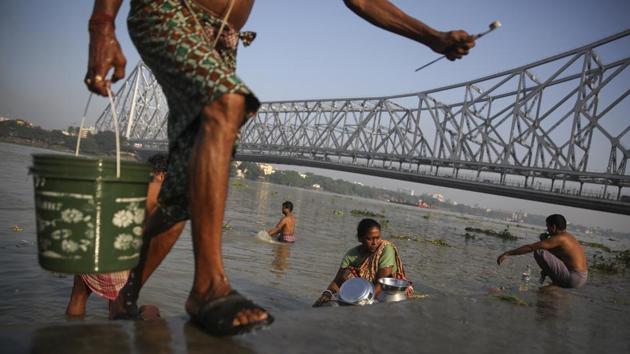West Bengal stares at Covid-19 biomedical waste crisis as disposal facilities reach threshold capacity
The two agencies that run the Common Bio-medical Waste Treatment and Disposal Facilities (CBWTF) have drawn the attention of the West Bengal government, which is in talks with the authorities to figure out how to tackle the impending crisis before the toxic waste starts spilling over.
West Bengal’s six biomedical waste treatment and disposal facilities have almost reached their threshold capacity amid the surge in coronavirus disease (Covid-19) outbreak, where the frontline workers battling the pandemic are discarding tonnes of personal protective equipment (PPE) items on a daily basis, ringing alarm bells of the spread of the contagion due to poor biomedical waste management in the state.

The two agencies that run the Common Bio-medical Waste Treatment and Disposal Facilities (CBWTF) have drawn the attention of the West Bengal government, which is in talks with the authorities to figure out how to tackle the impending crisis before the toxic waste starts spilling over.
“Covid-19 related medical waste, mostly in the form of PPE, collected from hospitals, has gone up several times. Usually, a hospital bed generates 250 grams of bio-medical waste daily that has risen to two kilograms (kg). Earlier, the major waste used to come from patients. Now, it is healthcare workers, whose discarded PPE kits are the source of the maximum waste,” said Krishnendu Dutta, deputy general manager (DGM) (operations), Medicare Environmental Management, which runs 21 facilities across the country, including four in south Bengal.
“We have alerted the state government about biomedical waste management. Talks are in progress to resolve the problem before it snowballs into a major crisis,” he added.
At present, the state has around 26,000 active Covid-19 patients.
While around 4,400 Covid-19 patients are undergoing treatment in state-run hospitals, the rest are being treated in private hospitals or at home.
Over 26,300 people are under home quarantine, while 2,829 and 1,564 are staying in government quarantine centres and safe homes, respectively.
“In Kolkata alone, there are around 1,000 homes, where families are staying in quarantine, and biomedical waste is being collected daily on a door-to-door basis. In July, around 1,100 kg of biomedical waste was collected from residential homes,” said Ramakant Burman, managing director (MD), Greentech Environ Management Private Ltd, the sole agency, which is authorised to collect biomedical waste from households in Kolkata and its satellite townships.
Unlike normal circumstances, when hospitals alone used to generate biomedical waste, now such waste is also being generated at homes, where people are staying under home quarantine. Besides, there are institutional quarantine centres and safe homes.
Waste collection crisis has deepened because of the poor level of awareness among the public, as many households are either refusing to hand over the medical waste to the authorised collector since it costs Rs 590 for each unit. Many people are dumping the waste in streetside garbage bins, ringing alarm bells about the spread of the pathogen.
“In most cases, the households are mixing the municipal solid waste, which includes kitchen waste, with biomedical waste. Around 70% of the biomedical waste collected from houses, quarantine centres and safe homes comprise municipal solid waste, including food, paper, and plastic, among others,” said an official of the Kolkata Municipal Corporation (KMC).
A state health department official said that recently the Central Pollution Control Board (CBCB) had delisted some items generated by Covid care centres, such as plates and glasses, from the list of medical waste and included them in the list of solid waste.
“We are in touch with the agencies. All options are being explored on how to tackle the impending crisis,” said a state health department official.
“It is a pan-India problem. We need to find a solution either in the form of increasing CBTWF’s capacity, which is likely to take a while, or delist some of the medical waste and treat them as municipal solid waste after proper sanitisation. We could be staring at another serious problem as far as biomedical waste management is concerned amid the pandemic,” said Dutta.




